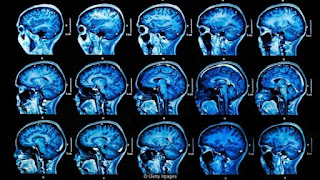Alzheimers 2018: Session 1: Dementia
What Is Dementia?
Causes:
Dementia is a general term for a decline in mental ability
severe enough to interfere with daily life. Memory loss is an example.
Alzheimer's is the most common type of dementia. Dementia is not a specific disease. It's an
overall term that describes a group of symptoms associated with a decline in
memory or other thinking skills severe enough to reduce a person's ability to
perform everyday activities. Alzheimer's disease accounts for 60 to 80 percent
of cases. Vascular dementia, which occurs after a stroke, is the second most
common dementia type.
Symptoms of Dementia:
While symptoms of dementia can vary greatly, at least two of
the following core mental functions must be significantly impaired to be
considered dementia:
- Memory
- Communication and language
- Ability to focus and pay attention
- Reasoning and judgment
- Visual perception
Causes:
Dementia is caused by damage to brain cells. This damage
interferes with the ability of brain cells to communicate with each other. When
brain cells cannot communicate normally, thinking, behavior and feelings can be
affected.
While most changes in the brain that cause dementia are
permanent and worsen over time, thinking and memory problems caused by the
following conditions may improve when the condition is treated or addressed:
- Depression
- Medication side effects
- Excess use of alcohol
- Thyroid problems
- Vitamin deficiencies
Dementia treatment and care:
Treatment of dementia depends on its cause. In the case of
most progressive dementias, including Alzheimer's disease, there is no cure and
no treatment that slows or stops its progression. But there are drug treatments
that may temporarily improve symptoms.
Dementia risk and prevention:
Some risk factors for dementia, such as age and genetics,
cannot be changed. But researchers continue to explore the impact of other risk
factors on brain health and prevention of dementia. Some of the most active
areas of research in risk reduction and prevention include cardiovascular
factors, physical fitness and diet.




GREETINGS everyone out there.. my name is (Robert Lora) I am from CANADA i will never forget the help Dr Ogudugu render to me in my marital life. I have been married for 8 years now and my husband and i love each other very dearly. After 6 years of our marriage my husband suddenly change he was having an affair with a lady outside our marriage, my husband just came home one day he pick up his things and left me and the kids to his mistress outside at this time i was confuse not knowing what to do again because i have lost my husband and my marriage too. i was searching for help in the internet, i saw many people sharing testimony on how Dr Ogudugu help them out with their marital problems so i contacted the email of Dr Ogudugu i told him my problem and i was told to be calm that i have come to the right place were i can get back my husband within the next 48hours, to my greatest surprise my husband came to my office begging me on his knees that i should find a place in my heart to forgive him, that he will never cheat on me again, i quickly ask him up that i have forgiven him. Friends your case is not too hard why don't you give Dr Ogudugu a chance, because i know they will help you to fix your relationship with your Ex Partner. Dr Ogudugu his the best spell caster around to solve any problem for you.
ReplyDelete{1} HIV/AIDS
{2CANCER
{3}HERPES
{4}DIABETES
(5}HERPERTITIS B
Email: GREATOGUDUGU@GMAIL.COM
Call/WhatsApp:+27663492930